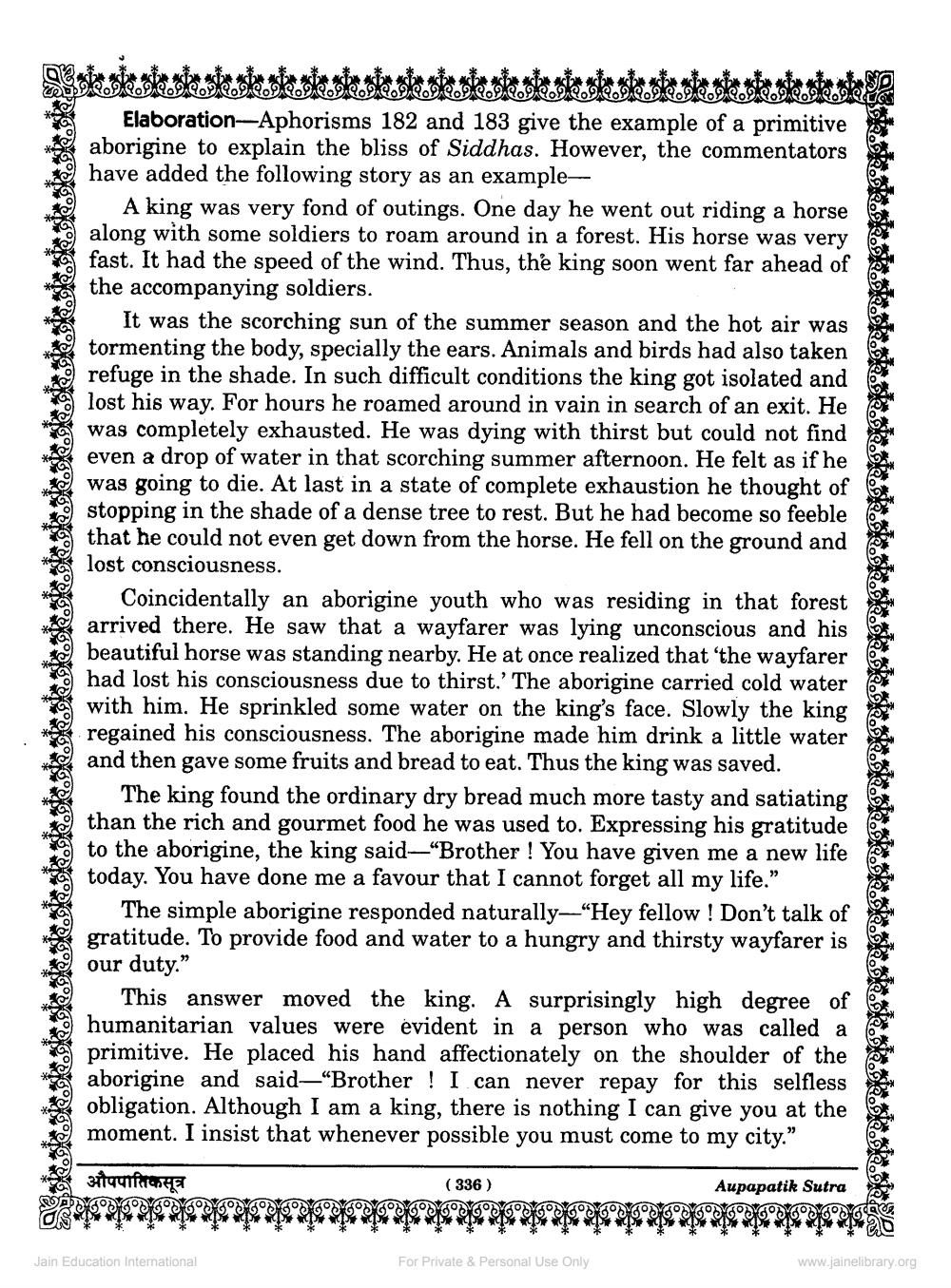________________
* Elaboration-Aphorisms 182 and 183 give the example of a primitive
aborigine to explain the bliss of Siddhas. However, the commentators have added the following story as an example
A king was very fond of outings. One day he went out riding a horse along with some soldiers to roam around in a forest. His horse was very fast. It had the speed of the wind. Thus, the king soon went far ahead of the accompanying soldiers.
It was the scorching sun of the summer season and the hot air was tormenting the body, specially the ears. Animals and birds had also taken refuge in the shade. In such difficult conditions the king got isolated and
lost his way. For hours he roamed around in vain in search of an exit. He * was completely exhausted. He was dying with thirst but could not find
even a drop of water in that scorching summer afternoon. He felt as if he was going to die. At last in a state of complete exhaustion he thought of
stopping in the shade of a dense tree to rest. But he had become so feeble 20 that he could not even get down from the horse. He fell on the ground and
lost consciousness. * Coincidentally an aborigine youth who was residing in that forest
arrived there. He saw that a wayfarer was lying unconscious and his beautiful horse was standing nearby. He at once realized that 'the wayfarer
had lost his consciousness due to thirst.' The aborigine carried cold water ** with him. He sprinkled some water on the king's face. Slowly the king
regained his consciousness. The aborigine made him drink a little water and then gave some fruits and bread to eat. Thus the king was saved.
The king found the ordinary dry bread much more tasty and satiating than the rich and gourmet food he was used to. Expressing his gratitude to the aborigine, the king said—“Brother ! You have given me a new life today. You have done me a favour that I cannot forget all my life.”
The simple aborigine responded naturally—“Hey fellow ! Don't talk of gratitude. To provide food and water to a hungry and thirsty wayfarer is our duty."
This answer moved the king. A surprisingly high degree of humanitarian values were evident in a person who was called a primitive. He placed his hand affectionately on the shoulder of the aborigine and said—“Brother ! I can never repay for this selfless obligation. Although I am a king, there is nothing I can give you at the moment. I insist that whenever possible you must come to my city."
*
औपपातिकसूत्र
(336)
Aupapatik Sutra
310
Jain Education International
For Private & Personal Use Only
www.jainelibrary.org




